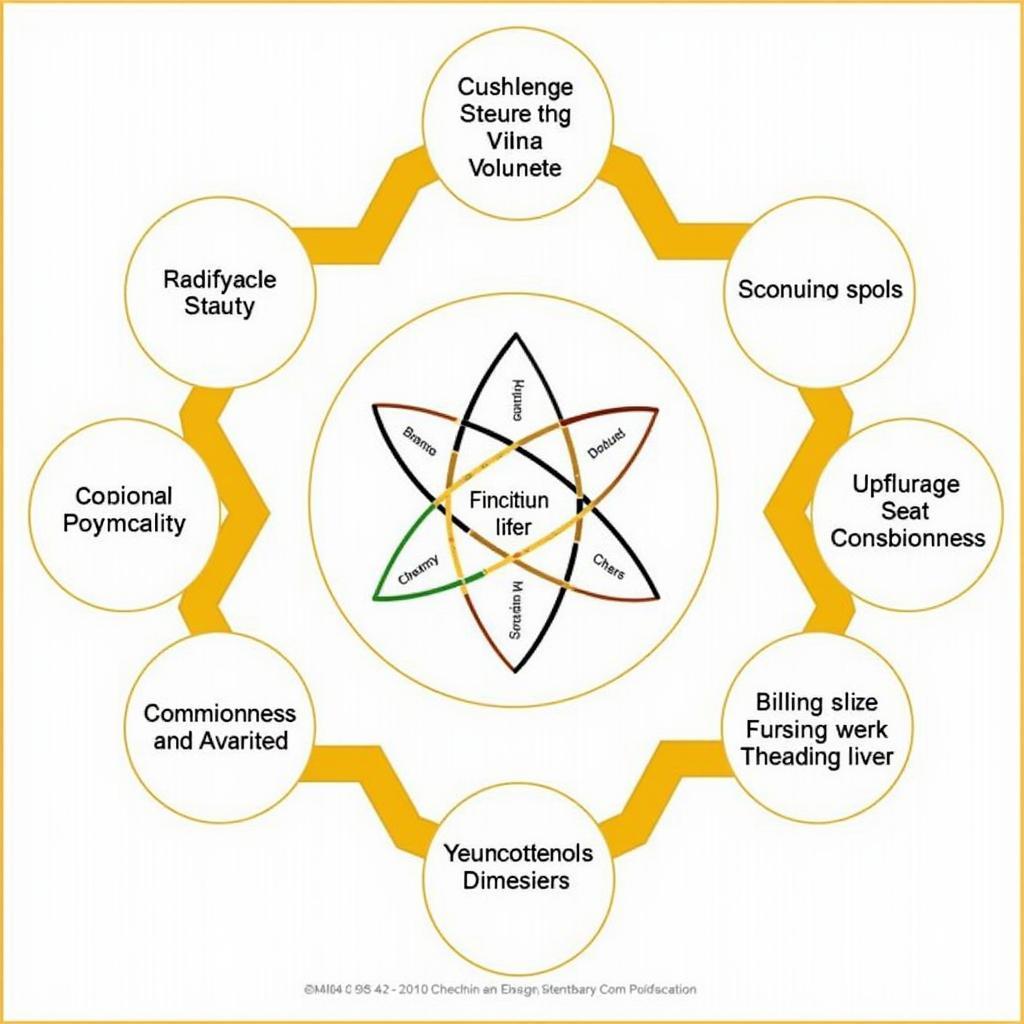Duy Thức Học In English can be a challenging concept to grasp, especially for those unfamiliar with Buddhist philosophy. This guide aims to demystify this complex school of thought, providing you with the tools and resources needed to understand and discuss it effectively in English.
What is Duy Thức Học?
Duy thức học, often translated as “Consciousness-Only,” is a profound branch of Mahayana Buddhism. It posits that all phenomena, including the external world, are manifestations of consciousness. This doesn’t imply a denial of reality, but rather a shift in perspective, emphasizing the primacy of mind in shaping our experiences. It’s crucial to understand that Duy Thức Học isn’t about solipsism, but rather about the interconnectedness of consciousness and perceived reality. Learning about Duy Thức Học opens a window into understanding the nature of reality itself. You can enhance your understanding by exploring resources like các trang học tiếng anh miễn phí hiệu quả.
 Duy Thức Học: Mind and Reality
Duy Thức Học: Mind and Reality
Key Concepts in Duy Thức Học
Several core concepts form the foundation of Duy Thức Học. These include the Eight Consciousnesses, the Three Natures, and the Five Aggregates. Understanding these concepts is essential for navigating the intricacies of Duy Thức Học in English.
The Eight Consciousnesses
The Eight Consciousnesses categorize different levels of awareness, ranging from the five senses to the storehouse consciousness (Alaya-vijnana), which contains the seeds of karmic impressions. This concept can be compared to a computer’s hard drive, storing all data and influencing present experiences.
The Three Natures
The Three Natures explain how we perceive reality. They are the Imagined Nature, the Dependent Nature, and the Perfected Nature. These natures highlight the illusory nature of our ordinary perceptions and the potential for realizing true reality through spiritual practice.
The Five Aggregates
The Five Aggregates (form, sensation, perception, mental formations, and consciousness) describe the components that make up our experience of self. Understanding these aggregates is crucial for deconstructing the illusion of a separate self, a key aspect of Duy Thức Học. You might find helpful resources on cách học tiếng anh trên mạng hiệu quả to delve deeper into these concepts.
 Diagram of the Eight Consciousnesses
Diagram of the Eight Consciousnesses
Studying Duy Thức Học in English: Resources and Approaches
While challenging, studying Duy Thức Học in English is achievable with the right approach. Utilizing translated texts, online forums, and academic resources can significantly enhance your understanding.
Recommended Resources
- Translated texts of key Duy Thức Học scriptures.
- Academic papers and books on Buddhist philosophy.
- Online forums and communities dedicated to Buddhist studies. Mastering the necessary vocabulary is vital for effective communication. Consider resources on cách học các giới từ trong tiếng anh to solidify your language skills.
Learning Strategies
- Start with introductory texts before tackling more complex treatises.
- Join online study groups or forums for discussion and clarification.
- Engage in contemplative practices to deepen your experiential understanding. Learning from experienced practitioners can also be invaluable. Explore idiom học hỏi theo ai đó to understand the benefits of mentorship in learning.
Conclusion
Understanding Duy Thức Học in English offers a unique perspective on the nature of reality and consciousness. While it requires effort and dedication, the rewards are immense. By utilizing available resources and adopting effective learning strategies, you can delve into this fascinating field and unlock its profound wisdom. Duy Thức Học provides a rich framework for understanding the interconnectedness of mind and experience, offering a path towards greater self-awareness and spiritual growth.
FAQ
- What is the main premise of Duy Thức Học?
- What are the Eight Consciousnesses?
- How do the Three Natures relate to our perception of reality?
- What are the Five Aggregates and their significance?
- Where can I find resources for studying Duy Thức Học in English?
- What are some effective strategies for learning Duy Thức Học?
- How does Duy Thức Học differ from other Buddhist schools of thought?
Mô tả các tình huống thường gặp câu hỏi
Người học thường gặp khó khăn trong việc hiểu các thuật ngữ chuyên ngành Phật giáo trong tiếng Anh. Việc tìm kiếm tài liệu đáng tin cậy cũng là một thách thức.
Gợi ý các câu hỏi khác, bài viết khác có trong web.
Bạn có thể tìm hiểu thêm về các chủ đề liên quan như “học 3d animation” trên website của chúng tôi.

